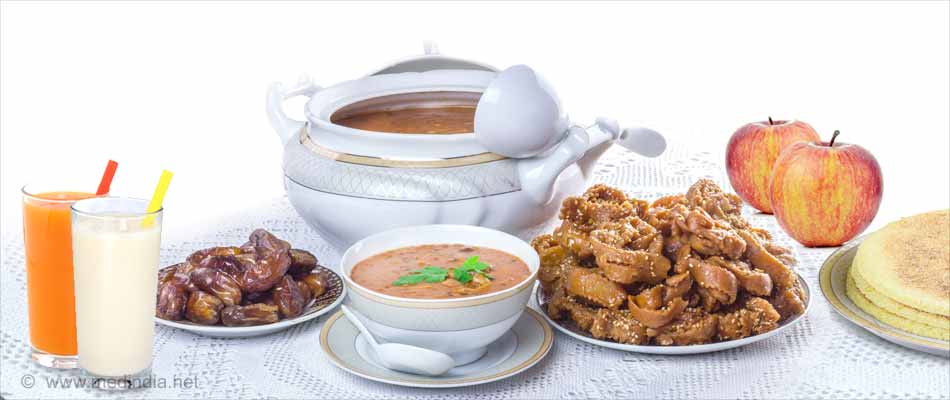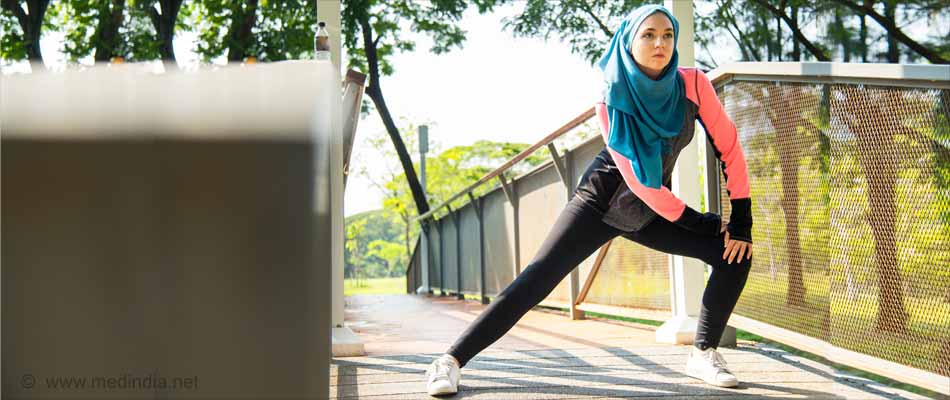- Healthy fasting during Ramadan - (https://www.rmit.edu.au/students/support-and-facilities/student-support/health/healthy-body-healthy-mind/healthy-fasting-during-ramadan)
About
Ramadhan is here already, and while this holy month is important for all Muslims as far as self-restraint is concerned, what is even more important is ensuring that this new routine doesn’t affect your health.
Ramadhan and Food
Unlike other months of the year, the month of Ramadhan will need you to make some changes to your eating habits. You will need to have a pre-dawn meal (suhoor), and then restrict yourself from food and water throughout the day. You will then break your fast at sunset (Iftaar), and then follow the same routine for the entire month.

Naturally, food plays a crucial role during this month-there are several ways you could go wrong and end up feeling tired, lethargic and weak both throughout the fast and probably even after you break it.
Tips to Eat Healthy and Stay Active During Ramadhan
Here we’ve bought you some simple tips to fast healthily during the month and keep yourself fit and active through it all.
Stick to Healthy Foods
The golden rule of staying fit throughout this month is to stick to consuming healthy and nutritious foods. Don’t use Ramadhan as an excuse to gorge on fried, salty and sweet foods - your body is deprived of food and water throughout the day, and overburdening it with these foods could turn out to be a bad idea.

Experts believe that consuming sweet and fatty foods can not just affect your waistline, but also cause sluggishness and fatigue throughout the day. Consuming salty foods, especially during Suhoor can increase the feeling of thirst. It is recommended that you consume fiber-rich foods during Ramadhan- they help you feel fuller for a longer time.
Don’t Overeat
Overeating during Iftaar could be just as harmful as fasting without having the Suhoor meal. Make sure the food that you eat as you break your fast is nutritious and well balanced. It is best to avoid consuming fried foods at this stage, and stick to a light meal. Chewing your food properly is also very important here.
It has been found that consuming fruits on an empty stomach is the best- it helps harness the maximum power from the fruits, whereas consuming fruits after a dinner can cause it to decay and even cause harm. So make sure you break your fast with some fresh seasonal fruits and then proceed to other food preparations.

Don’t Skip the Suhoor
Suhoor is definitely the most important part of your fast- since you’ll be off food and water all day, it is important for you to consume something to give you energy to go through the rest of the day. Make sure you don’t skip Suhoor at any cost, and even avoid overeating during this period.

Have a light meal, preferably with unprocessed and natural foods, and make sure you have at least 2 glasses of water too.
Warm Water Power
While you may want to quench your day’s thirst with a glass of cold water, avoid doing so. It is best to have a glass of warm water right in the beginning as you break your fast. This is thought to strengthen the eyes, boost digestion and make you feel less lethargic and tired after you break your fast.
You can also consider drinking fresh fruit juices or a bowl of soup - the basic idea is to rehydrate your body.
According to Islamic traditions, milk, dates, oats, grapes, cucumbers, figs, lentils, mutton, olives and other fruits and vegetables are the best foods to be consumed during Ramadhan. It is also best to limit your physical activity during this stage and take optimum rest- you don’t need to stay in bed all day though!

It is a good idea to have some light exercise following your Iftaar meal- this will keep you from feeling tired and lethargic.






